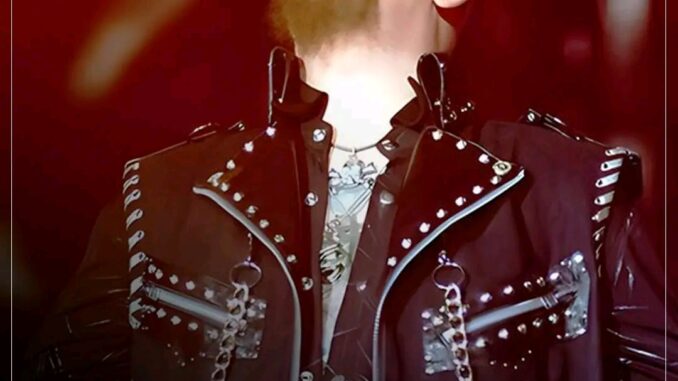
Rob Halford’s Perspective on Homophobia in America
Rob Halford, the legendary frontman of Judas Priest, has long been celebrated not only for his powerful voice and influential contributions to heavy metal but also for his openness about his identity as a gay man. His candidness has made him a prominent figure in both the music industry and the LGBTQ+ community. Recently, Halford expressed his view that America continues to be an “incredibly homophobic” country, a statement that invites reflection on the current social and political climate regarding LGBTQ+ rights and acceptance in the United States.
The Context of Halford’s Statement
Rob Halford’s assertion stems from his observations and experiences navigating the American cultural landscape. Despite significant progress over the decades—including the legalization of same-sex marriage nationwide in 2015 and increasing visibility of LGBTQ+ individuals—he perceives that underlying prejudices and discrimination persist. His comments highlight that, while legal rights have advanced, societal attitudes often lag behind, especially in certain regions or communities.
Historical and Cultural Background
The United States has a complex history with LGBTQ+ issues. The Stonewall Riots of 1969 marked a pivotal turning point, igniting the modern gay rights movement and fostering greater activism and visibility. Since then, there have been notable victories, including anti-discrimination laws, the repeal of “Don’t Ask, Don’t Tell,” and marriage equality. However, these victories have not eradicated prejudice.
In many parts of the country, conservative cultural and religious beliefs continue to influence attitudes toward LGBTQ+ individuals. This has led to a patchwork of acceptance, where urban areas tend to be more progressive and welcoming, while rural and conservative regions may remain resistant or outright hostile.
Evidence Supporting the Perception of Homophobia
Rob Halford’s comments are not unfounded; numerous reports and studies indicate that homophobia remains prevalent in American society. Surveys have shown that:
– A significant percentage of Americans still harbor negative attitudes toward LGBTQ+ people.
– LGBTQ+ individuals face high rates of discrimination, harassment, and violence.
– Conversion therapy, though widely discredited, still exists in certain states.
– Transgender rights, particularly related to healthcare and legal recognition, are highly contested and often under attack.
High-profile incidents, such as anti-LGBTQ+ legislation targeting transgender youth or bans on gender-affirming care, underscore ongoing societal conflicts. These policies reflect a broader resistance among certain political factions to accept and normalize diverse sexual orientations and gender identities.
The American Political Climate and Its Impact
The political landscape heavily influences perceptions and realities of homophobia. The polarization between progressive and conservative ideologies often manifests in policies and rhetoric that either support or undermine LGBTQ+ rights.
During the Trump administration, for example, there were several rollbacks on protections for LGBTQ+ individuals, and rhetoric often included derogatory language. Although the Biden administration has sought to reverse many of these policies, the political discourse remains contentious.
Legislation at the state level varies dramatically, with some states enacting protective laws, while others pass bills that restrict transgender rights or enable discrimination. This uneven legal landscape contributes to the perception that societal acceptance is inconsistent across the country.
Societal Attitudes and Cultural Shifts
Despite the challenges, there has been notable progress in societal attitudes. Younger generations tend to be more accepting and open-minded about LGBTQ+ issues. Schools, media, and popular culture have increasingly embraced diverse representations, fostering greater understanding and normalization.
Public opinion polls indicate rising acceptance of same-sex relationships and transgender rights. Celebrities and public figures coming out have helped normalize LGBTQ+ identities, and pride events draw large, diverse crowds.
However, backlash persists, often fueled by misinformation, religious conservatism, and political conservatism. This resistance perpetuates a climate where homophobia—whether explicit or implicit—remains entrenched in certain communities.
Personal Experiences and Public Perception
Rob Halford’s own experiences as a gay man in the heavy metal scene—a genre historically associated with masculinity and sometimes perceived as hostile to non-conforming identities—are likely informing his perspective. While Judas Priest has become a symbol of musical innovation, Halford’s openness has sometimes subjected him to discrimination or prejudice, reflecting broader societal biases.
His statement about America being “incredibly homophobic” can be seen as both a critique and a call for continued progress. It underscores that, despite legal advancements, societal change is an ongoing process that requires persistent effort and awareness.
The Role of Music and Cultural Influence
Artists like Rob Halford have played a vital role in challenging stereotypes and promoting acceptance through their visibility and advocacy. Music has historically been a powerful tool for social change, fostering community and raising awareness about marginalized groups.
Halford’s openness has inspired many in the LGBTQ+ community and beyond, demonstrating that authenticity and courage can help break down prejudices. His perspective emphasizes that societal acceptance involves more than laws—it demands cultural shifts and personal acceptance.
Moving Forward: Challenges and Opportunities
While Halford’s critique points to persistent issues, it also highlights opportunities for growth. Education, representation, and dialogue are key to combating homophobia. Initiatives that promote understanding and challenge stereotypes can help create a more inclusive society.
The increasing visibility of LGBTQ+ individuals in media, politics, and public life offers hope for change. Legal protections continue to expand, and grassroots movements work tirelessly to combat discrimination and promote equality.
However, vigilance remains essential. Resistance to change, misinformation, and political agendas can threaten progress. Recognizing and addressing underlying prejudices is critical to fostering a society where everyone is truly accepted.
Conclusion
Rob Halford’s assertion that America remains an “incredibly homophobic” country reflects a nuanced understanding of the ongoing struggles faced by LGBTQ+ individuals. While legal rights and societal attitudes have improved significantly, deep-seated prejudices and discrimination persist in various forms. His perspective serves as both a critique and a call to action—reminding us that societal acceptance is an ongoing journey that requires continuous effort, empathy, and courage. As America continues to evolve, the hope remains that greater understanding and acceptance will ultimately prevail, creating a more inclusive future for all.
Leave a Reply